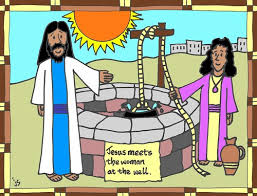Matthew 7:15-16–Beware of false prophets, who come to you in sheep's clothing but inwardly are ravenous wolves. You will recognize them by their fruits. Are grapes gathered from thorn bushes, or figs from thistles?
Sometimes we assume the word 'prophet' to mean a person who foretells future events, but that is not the only definition. People who were accepted as public religious instructors were also considered prophets.

At the time of Jesus, the word basically meant all religious leaders (especially teachers), and that is the sense it is used in this passage.
What made a person a false prophet? A prophet/teacher was considered false for any one of these reasons:- Assuming the role of religious leader/teacher without a call from God
- Putting forward his/her own thoughts and ideas as being from God
- Teaching any false doctrine
What effect did false prophets/teachers have on the church? Through false teaching, Christians were fooled into turning aside from the true faith and believing something false. These false doctrines caused believers to become spiritually confused or bound by lies, and consequently rendered them ineffective in the Kingdom of God. Worse yet, some of these doctrines could cause Christians to fall away from their faith in Christ.
Second, the teachings and leadership of the false prophets often brought them undue honor and prestige. They acted like they were the only ones who could hear from God and know what to do. At best, they were limiting the true relationship between the believer and God. At worst, they were a wedge that cut believers off from God and caused them to lose their faith.
Let's look at an example. In the old covenant, all men who were part of God's chosen people had to be circumcised. However, when Jesus came to fulfill the law, he declared that circumcision was no longer something to be done in the flesh. Instead, circumcision was a spiritual act; all the people in His kingdom would be circumcised in their hearts by cutting sin out of their lives.
Romans 2:28-29 – For no one is a Jew who is merely one outwardly, nor is circumcision outward and physical. But a Jew is one inwardly, and circumcision is a matter of the heart, by the Spirit, not by the letter.
But we find that many false prophets and false teachers were still insisting that any man who became a Christian had to be circumcised in the flesh.
This false doctrine caused a rift between the Jews and the Gentiles, which threatened to split the church in half. It created an atmosphere of distrust among the believers. It was a rejection of the new covenant that Jesus paid for with his blood.

If Satan could coax Christians into holding onto physical circumcision, he had a substantial chance of sinking the whole church before it was fully established! This is only a glimpse of the destruction that false teaching can set in motion.
False teachers were also big into self denial and mortification of the flesh. They tended to be very rule oriented; they felt that every single law must be stringently observed through their own willpower. How tiresome! Have you ever determined not to do something "ever again" only to find yourself doing it a day later? That's what happens when you try to rule your flesh by willpower alone.
Sadly, they missed the blessing that Jesus gave us through the new covenant – the indwelling of the Holy Spirit, who changes our hearts. Once our hearts and minds have been renewed, our outward actions naturally change too. We don't have to focus all of our energy on obeying every law through sheer willpower because our new nature will prompt us to do the right thing on its own.
Jesus says that false teachers are like wolves disguised as sheep. That is, they appear to be innocent, helpful, loving and knowledgeable about spiritual things, but in reality, they are full of deadly evil. They are hypocrites who mislead and destroy sincere believers.
So, how can a Christian keep from being fooled by these false prophets and teachers?
Matthew 7:17-18 – So, every healthy tree bears good fruit, but the diseased tree bears bad fruit. A healthy tree cannot bear bad fruit, nor can a diseased tree bear good fruit.
Comparing spiritual leaders/teachers to fruit trees may seem a bit strange, but it makes more sense if you have some background information: In scripture and in Jewish phraseology, fruits are symbolic of works. Jesus is telling us that the way to determine which teachers are false and which are true is by examining their fruits, or works.
So if a person comes along claiming to have spiritual authority, take a look at their life. Do they have joy, peace, holiness, patience, gentleness and love for mankind? Do they give God the glory for what they are accomplishing? Do they care for the poor and the lost?

If so, they are a healthy tree which is bringing forth good fruit. They can be trusted to lead you in the right paths.
However, if you look at the person's life and find anger, pride, envy, slander, greed, unforgiveness, bitterness or other evils you can safely conclude they are a bad/diseased tree. Therefore, both the teacher and the teaching should be rejected as false. Have no part with them!
Matthew 7:19-20 – Every tree that does not bear good fruit is cut down and thrown into the fire. Thus you will recognize them by their fruits.
Hmmm... some of these words seem familiar - where did we heard them before? That's right – they were already spoken to the Pharisees and other religious leaders by John the Baptist:
Matthew 3:10 - And now also the ax is laid unto the root of the trees: therefore every tree which brings not forth good fruit is hewn down, and cast into the fire.
People who bring forth diseased fruit (anger, envy, pride, etc) will someday be cast into the fires of hell, because they are not true children of God. That is why John the Baptist warned the Scribes and Pharisees to repent and seek the kingdom of Heaven.
Matthew 7:21-23 - Not everyone who says to me, 'Lord, Lord,' will enter the kingdom of heaven, but the one who does the will of my Father who is in heaven. On that day many will say to me, 'Lord, Lord, did we not prophesy in your name, and cast out demons in your name, and do many mighty works in your name? And then will I declare to them, 'I never knew you; depart from me, you workers of lawlessness.'
You see, it is not enough to just claim God as your father or Jesus as your savior. It is not enough to just have knowledge of God in your head. You could study the scriptures for years on end (like the Pharisees did), but if it is just a series of facts floating around in your brain, it is of no value. [Even Satan acknowledged that Jesus was the Son of God, but he is still going to be cast into the fires of hell]. Why? Because it takes more than just factual knowledge to save your soul.
True knowledge of God must be like a seed planted in your heart by the Holy Spirit. It must germinate and take root.
As the Holy Spirit waters it, it will grow and transform your life. It will change both your thoughts and your actions. It will result in good works such as joy, peace, forgiveness and love, which are good fruits. Your life will conform to God's will. These are the marks of true children of God who will be welcomed into heaven.
In the same way, anyone who has the ability to speak can verbally profess Jesus as Lord, and even teach (prophesy) his word, but that does not mean they are true children of God. The true child of God doesn't just teach or profess his name, they sincerely strive to do the will of God. True Christians have actions that align with their words.
At the end of time, Jesus will assume his rightful role as judge of mankind. At that time, there will be people who will claim to be servants of Christ because they taught his word (prophesying), cast out demons and performed miracles. However, Jesus will refute their claims, saying that these people were never his true children. Jesus then reinforces his point by giving the parable of the wise and foolish builders (see below).
Jesus has given the analogy of the tree and fruit to identify false teachers and show what their judgment will be. He now gives us the parable of the wise and foolish builders to show that the 'doers' of the word are different from just 'hearers' of the word, and all of us will be held accountable for our own spiritual condition.
Matthew 7:24-25 –Everyone then who hears these words of mine and does them will be like a wise man who built his house on the rock. And the rain fell, and the floods came, and the winds blew and beat on that house, but it did not fall, because it had been founded on the rock.
Matthew 7:26-27 – And everyone who hears these words of mine and does not do them will be like a foolish man who built his house on the sand. And the rain fell, and the floods came, and the winds blew and beat against that house, and it fell, and great was the fall of it.
Jesus has packed a lot of teaching into this short parable. Here are some lessons we can take away from his teaching:
Each one of us is responsible for building our own house. We cannot rely on others to do it for us. You cannot rely on the faith and salvation of your parents, grandparents or anyone else. You must be a disciple of Christ yourself.
Jesus is the rock. He is the only one who can pardon sin through his shed blood and thus he is the only true foundation that you can build your spiritual house upon.
1 Corinthians 3:11 – For no one can lay a foundation other than that which is laid, which is Jesus Christ.
Hearing the word is NOT building upon it. Building is acting in faith based upon the words you heard.
When you hear that Jesus forgives sin, you must act in faith to receive that forgiveness for yourself. Subsequent to your salvation, the Holy Spirit will enlighten you to the way God wants you to live. He will then assist you as you bring your mind, will, emotions and actions into conformity with God's principles for your life. This is how you build upon the foundation of Christ. Building a house in the natural world does not happen overnight, especially if there is only a single builder. So it is with your spiritual house – you build it day by day; it is established slowly over time as you constantly work at it.

The storms of life will eventually come to all men regardless of which foundation they build upon. Those who build on the foundation of Christ will stand. They will be victorious through disease, political instability, financial ruin, persecution, etc. They are even victorious in death, knowing that to be absent from the body is to be present with Christ.
However, those who did not build upon Jesus will have no hope in the storms of life. They will have no comfort, no peace, no joy and no satisfaction when trouble comes. They have no eternal assurance to lean upon when death comes to claim them.
As you consider these teachings of Jesus, examine yourself and make sure that you are indeed building by faith upon that sure foundation!
Matthew 7:28-29 – And when Jesus finished these sayings, the crowds were astonished at his teaching, for he was teaching them as one who had authority, and not as their scribes.
The Scribes and Pharisees were the teachers of the Jewish nation. However, they spent their time teaching mostly the traditions of their forefathers, not the word of God. They also allowed useless and trivial disputes to occupy much of their time and attention. As such, they were of little use to the spiritual growth of their fellow Jews.
Jesus, however, came speaking the true words of God. He came in authority, confirming his doctrine with miracles. Jesus showed that he had the authority to explain, enforce and change the ceremonial laws of the Jews. He cut right through the foolishness of the Pharisees, revealing the truth like a breath of fresh air. This authority was astounding to the Jews.
So let me offer you some encouragement:
It is true that there are many false teachers in the world, but you don't have to be fooled by them! Jesus has given you the tools to pick out the bad 'apples'.
First, take a look at their fruits. If they are good, that is a positive sign. Next, listen to what they are teaching. Does it line up with the rest of scripture? That is another good indicator. Finally, remember that Jesus says his sheep know his voice and they will not listen to the voice of another (see John 10). So pray about it and ask the Holy Spirit to speak to you about a particular teacher. If God approves him, that is the best recommendation of all!
Let me offer you some relief:
Even a very fruitful grape vine will produce some sour grapes once in a while. In the same way, you and I are not perfect. Once in a while we are going to 'blow it', or act according to our flesh instead of our spirit. When that happens, ask God to forgive you and move on. Don't let Satan stop you in your tracks because you made a mistake. If your life is showing a definite progression towards fruitfulness and good works, you are on the right track.
Let me offer you some strength:
We are going to experience storms in this life. They come in many different forms, including sickness, tough financial breaks, relationship problems, and many other things. When those storms come, the person who has built their life on the solid rock of Christ Jesus WILL prevail! We will go through those trials comforted, supported and protected by our Heavenly Father. Hallelujah - His strength is made perfect in our weakness!









 Your eye will steer you around puddles or rocks or broken glass. It will assist you in stepping off the curb without falling and stop you when traffic is coming. All the while, the eyes keep the body steadily moving toward the ultimate goal, the art museum. Eventually you arrive there and enjoy the rest of the afternoon, courtesy of your eyes.
Your eye will steer you around puddles or rocks or broken glass. It will assist you in stepping off the curb without falling and stop you when traffic is coming. All the while, the eyes keep the body steadily moving toward the ultimate goal, the art museum. Eventually you arrive there and enjoy the rest of the afternoon, courtesy of your eyes.

 They are often referred to as the 'third hour' which would be 9 am (Mark 15:25)...
They are often referred to as the 'third hour' which would be 9 am (Mark 15:25)...







 While that may seem laughable to us, don't mock them just yet, because we do essentially the same thing!
While that may seem laughable to us, don't mock them just yet, because we do essentially the same thing!




 busy ministering to people. He preached in the synagogues, attended Passover in Jerusalem (John 2), had a discussion with Nicodemus (John 3), spoke to the woman at the well (John 4), performed a miracle at the wedding at Cana and much more.
busy ministering to people. He preached in the synagogues, attended Passover in Jerusalem (John 2), had a discussion with Nicodemus (John 3), spoke to the woman at the well (John 4), performed a miracle at the wedding at Cana and much more.



